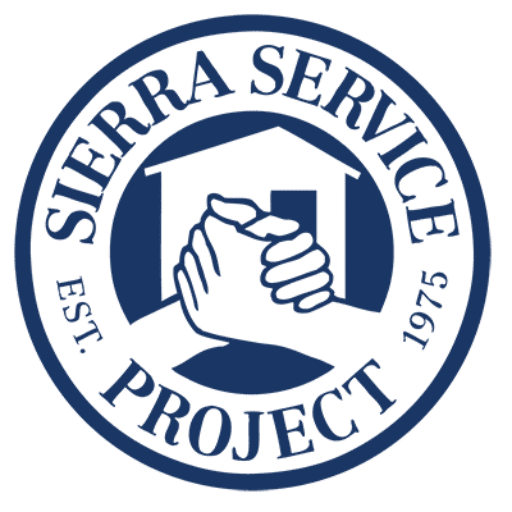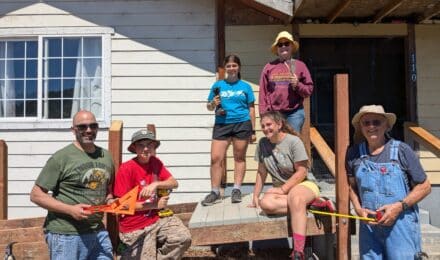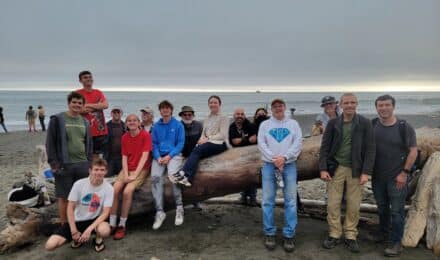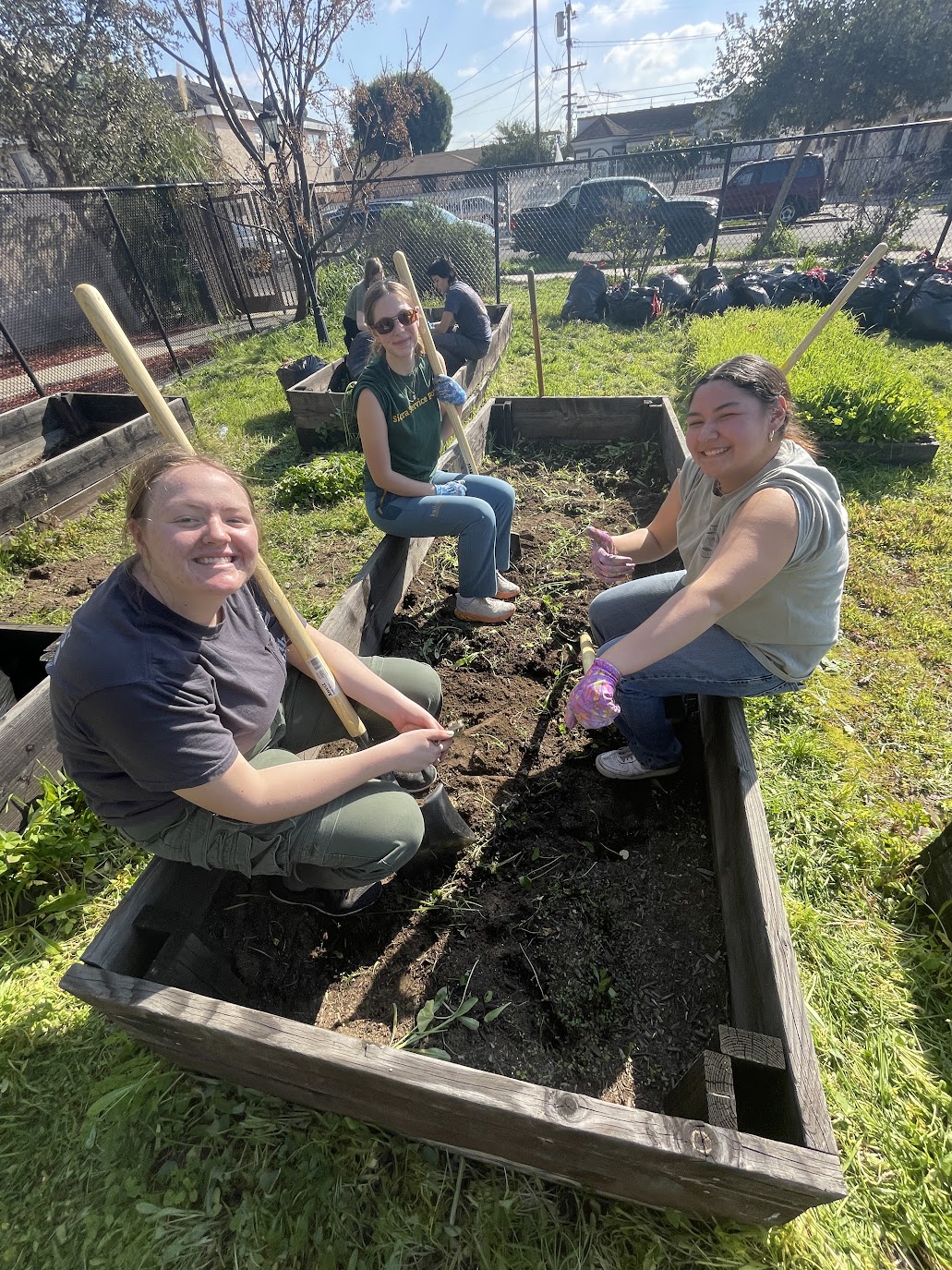
[vc_row][vc_column][vc_column_text]
By Veronica Russell, SSP Director of Engagement & Impact
In our complex world and challenging economy, community spaces that foster local connections and reciprocal care have never been more vital. Tool libraries are great examples of such spaces that hold so much potential for community transformation.
What is a tool library?
Tool libraries bridge gaps between neighbors by providing people with the literal tools needed to complete home repair and other projects - often for free.
Local resources like tool libraries participate in the 'sharing economy,' in which an individual or group with a surplus of resources makes them available to the broader community. Often the sharing economy is talked about in the context of peer-to-peer commerce (think Facebook Marketplace). Still, it can also encompass mutual aid efforts, such as 'buy nothing' groups.
"Tool libraries bridge gaps between neighbors by providing people with the literal tools needed to complete home repair and other projects - often for free."
Get to know SSP's North Sacramento Free Tool Library:
In 2021, SSP took stock of the latent assets at our disposal: namely, home repair tools sitting unused in our warehouse while we reimagined our volunteer programs in a Covid-19-impacted world. We had ample opportunity to try new things during this period, and started considering new ways to creatively embody our institutional purpose. The vision for the North Sacramento Free Tool Library took shape.
This vision developed into a reality thanks to the design thinking and peer review process we utilized in the Lab Nonprofit Capacity Building Program, hosted by the Sacramento Region Community Foundation with coaching from Third Plateau. Since integrating the tool library into our weekly routine, SSP's headquarters staff has rotated through managing operations, though you're now most likely to see Sacramento Program Manager Max Rosa if you stop by.
[caption id="attachment_16026" align="aligncenter" width="300"] SSP's 2023 cohort of Americorps NCCC volunteers helped throw a 'birthday party' to celebrate its first year of operation.[/caption]
So how do they work?
Most tool libraries are set up to provide short-term loans of a few items at a time to residents or other community organizations. Often, all that is required to obtain the loan is some collateral to ensure the items are returned: an online account with a card on file, a refundable cash deposit, etc. Some require residency in a specific local area to borrow.
In the case of SSP's tool library in North Sacramento, a borrower can either reserve one or several tools and schedule a pickup time via an online platform called MyTurn. This includes an inventory displaying available tools, and those currently on loan show the expected return date. Tools are loaned for a one-week period but can be renewed as needed. It is free to use the tool library, and borrowers are only charged a nominal fee for late or lost items.
All users are invited to become a Friend of the Tool Library to support the operations by making a suggested $40 annual donation upon creating an account, but it is not required. Users are also encouraged to sign up for a volunteer shift at the tool library.
...and why should I care?
Tools are expensive! With inflation continually rising and the cost of living rapidly outpacing wage growth, many households find themselves pinching pennies. Repairs or needed updates to homes may be one of the first large expenses cut from spending decisions.
When a household doesn't have access to high-cost tools such as cordless drills, chop saws, or tree trimmers, that can dramatically raise the overall cost of a repair project. SSP knows from 48 years of experience in home repair work that having a safe and accessible home is still an essential component of a person's long-term health - but it is a priority many households may forego due to finances.
"When a household doesn't already have access to high-cost tools such as cordless drills, chop saws, or tree trimmers, that can dramatically raise the overall cost of a repair project."
How does a tool library add value to a community?
Of course, systemic inequities play a factor in these obstacles. Pew Research Center studies show that Black and Hispanic communities still face disproportionate economic barriers, not to mention the United States' history of redlining (among many other factors) furthering these wealth gaps. This inevitably impacts not just household spending power, but also neighborhood wealth and access to vital resources.
[/vc_column_text][vc_raw_html]JTNDYSUyMGhyZWYlM0QlMjJodHRwcyUzQSUyRiUyRnd3dy5wZXdyZXNlYXJjaC5vcmclMkZzaG9ydC1yZWFkcyUyRjIwMjIlMkYwNSUyRjEwJTJGYmxhY2stYW5kLWhpc3BhbmljLWFtZXJpY2Fucy10aG9zZS13aXRoLWxlc3MtZWR1Y2F0aW9uLWFyZS1tb3JlLWxpa2VseS10by1mYWxsLW91dC1vZi10aGUtbWlkZGxlLWNsYXNzLWVhY2gteWVhciUyRmZ0XzIwMjItMDUtMTBfbWlkZGxlY2xhc3NfMDMlMkYlMjIlM0UlM0NjZW50ZXIlM0UlM0NpbWclMjBzcmMlM0QlMjJodHRwcyUzQSUyRiUyRnd3dy5wZXdyZXNlYXJjaC5vcmclMkZ3cC1jb250ZW50JTJGdXBsb2FkcyUyRjIwMjIlMkYwNSUyRmZ0XzIwMjIuMDUuMTBfbWlkZGxlY2xhc3NfMDMucG5nJTNGdyUzRDQ0MCUyMiUzRSUzQyUyRmNlbnRlciUzRSUzQyUyRmElM0U=[/vc_raw_html][vc_column_text]SSP's office is located in historic Old North Sacramento, a neighborhood affected by these very issues. We are grateful to be able to provide a small piece of community care and to better connect with all our neighbors through what the tool library has to offer.
"A resource that removes barriers facing under-resourced communities - such as a tool library - can go a long way in building supportive neighborhood relationships, spending power, and dignity."
A resource that removes barriers facing under-resourced communities - such as a tool library - can go a long way in building supportive neighborhood relationships, spending power, and dignity. And let's be honest - every community can benefit from that.
In short, a resource like a tool library can change lives.
Editor’s Note: Feeling enthusiastic about supporting community resources? You can help SSP's free tool library in North Sacramento by making a financial gift, donating tools, or volunteering your time. We also encourage you to find your local tool library, or even start one in your own neighborhood!
Questions? Email Tools@SierraServiceProject.org. SSP's tool library hours are Tuesdays from 4-6 PM (open for drop-in), and Saturdays from 10 AM - noon (by advance request only). Have fun building![/vc_column_text][/vc_column][/vc_row]




